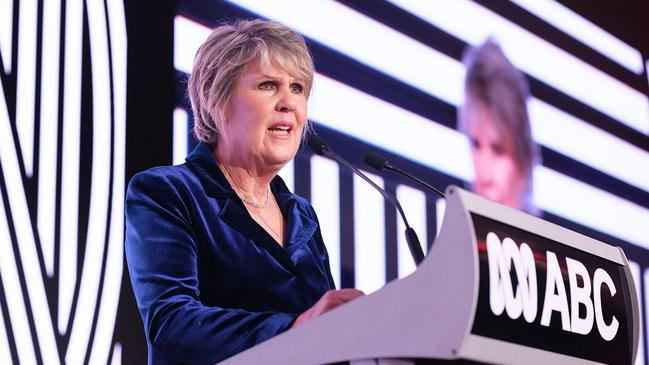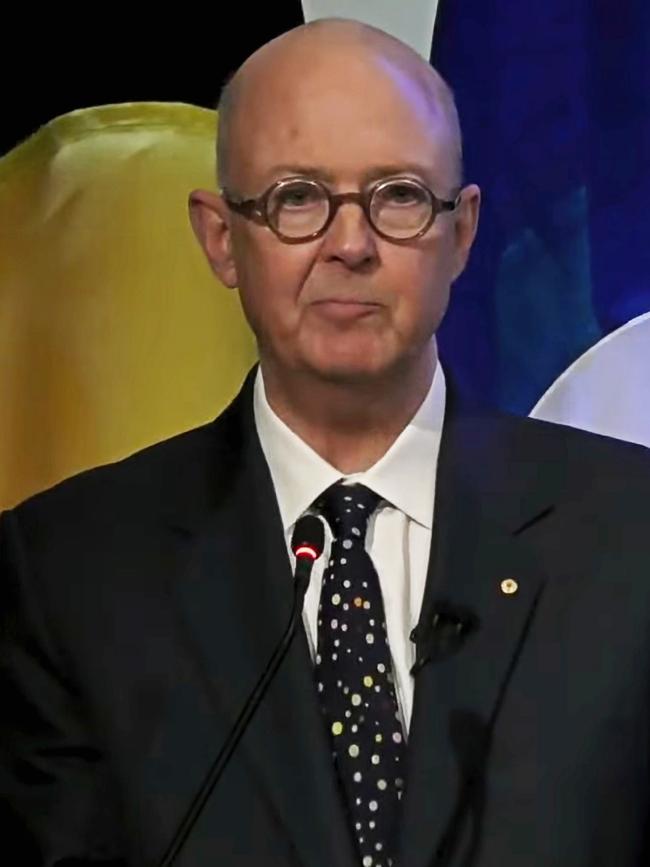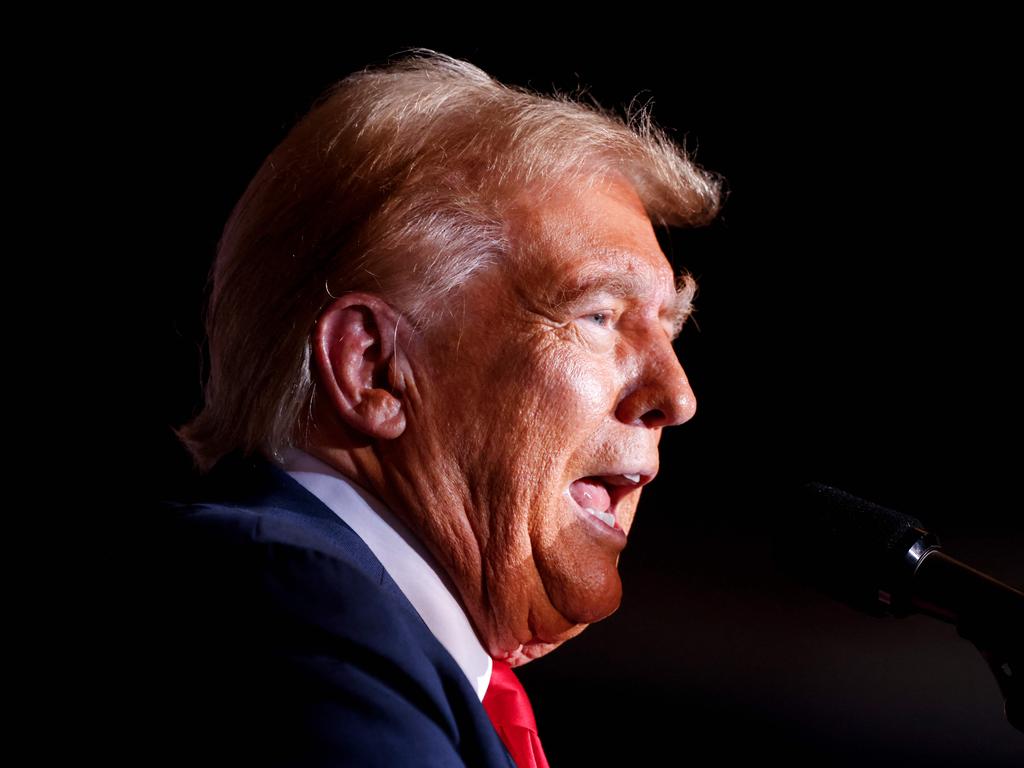
So it came as no surprise that when Kelly delivered the ABC’s 2024 Andrew Olle Media Lecture in Sydney on October 18 there was no praise for journalists of the activist genre. But there was much flattery of her current and former colleagues, along with a warning about misinformation and disinformation.
What was missing in the long dinner speech was evidence to support much of the argument. Early on, Kelly declared that she and her colleagues always sought to be objective, accurate, balanced and empathetic. And then went on to accuse ABC critics of coming to “hate the national broadcaster”.
Her evidence? Well, there was none. Except for a reference to a male neighbour who once located her lost dog but, later on, verbally abused her and her employer. Kelly stated “he doesn’t like the ABC”. Probably not. But there is no discussion as to whether the badly behaving neighbour might be suffering from a mental illness.
It was not long before Kelly was warning that “truth can be manipulated” and that “people in power have always known it; that facts can be manipulated”. She then went on to make this comment: “It seems we’ve lost any notion of ‘agreed facts’ as a baseline for civilised debate.”
This is a significant misreading of democracies. The success of democracy is that it is possible to manage disagreement in a peaceful manner. It is rare indeed that in Australia there have been instances of “agreed facts” on most contentious issues.
I was not present at the 2024 Andrew Olle Lecture. But it would be surprising if a room full of journalists would concur with the proposition that we can all agree about facts. Kelly went on to specifically condemn misinformation and disinformation. The problem is that what is misinformation to, say, Kelly may be the truth to someone else.
Kelly told her audience: “It is one year since the referendum that proved to be a case study of the widening fissures in our society and the distorting impact misinformation and disinformation can have on our democratic processes.” But was it? Kelly cites the analysis by the ANU Centre for Social Research and Methods of the voice to parliament referendum.
The ANU study found “the data suggests that Australians voted no because they didn’t want division and remain sceptical of rights for some Australians that are not held by others”. The majority agreed that Indigenous Australians suffer levels of disadvantage and require extra government assistance. But “they did not see the voice model put to them as the right approach to remedy that disadvantage”.

The 40 per cent of Australians who voted yes would disagree with this position. Fair enough. But it is not, in itself, a product of misinformation or ill-will. Moreover, one of the most prominent leaders of the No case was Senator Jacinta Nampijinpa Price, an Indigenous woman.
The problem Kelly faces in analysing contemporary Australian politics is that she has worked in a conservative-free zone for more than three decades and finds it hard to understand why others would disagree with her “progressive” positions. Sky News presenters during the voice debate included Chris Kenny (a Yes advocate) and Peta Credlin (a No advocate). I am not aware of any ABC presenter who indicated support for the No cause.
What was also missing from Kelly’s address was any sense of self-awareness. The problem with the ABC, which Kelly seems to regard as beyond reproach, is not such emerging cliches as misinformation and disinformation but, rather, factual error along with a lack of viewpoint diversity.
Kelly, an ABC staff member, used a high-profile public lecture to condemn the misinformation of others – but not that of the ABC. Some examples illustrate the point:
• The ABC led the media pile-on against the late Cardinal George Pell from 2017. The ABC’s prosecutor-in-chief was Louise Milligan who was open about the fact that her book, Cardinal, was written “from the complainants’ point of view”. In time, the only convictions of Pell for historical child sexual abuse were quashed by a unanimous judgment of the High Court.
• In 2018, ABC reporter Sarah Ferguson presented a three-part Four Corners series titled “Trump/Russia”. It was advertised as “the story of the century – the election of US president (Donald) Trump and his ties to Russia”. In time, the Trump/Russia conspiracy theory was correctly dismantled by reports by John Durham and Robert Mueller.
• In March 2021, the ABC ran a three-part program titled “Exposed: The Ghost Train Fire”, presented by Caro Meldrum-Hanna and Patrick Begley. The “big story” was that former NSW premier Neville Wran was somehow involved in the 1979 Luna Park fire that killed six children and one parent. This theory has been totally discredited by Milton Cockburn in The Australian on July 26 this year and in his book, The Assassination of Neville Wran (Connor Court). The ABC withdrew the program.
• And then there’s Kelly herself. On October 4, she introduced the ABC Saturday Extra program with the following claim: “Since the Hamas attacks (of October 7 last year) Israel has exacted devastating revenge; its forces have killed more than 40,000 Palestinians with relentless bombing of the Gaza Strip.”
Kelly did not state that the 40,000 figure was calculated by Hamas health authorities – or that it is estimated that some 20,000 Hamas fighters have been killed by Israel (who are counted in the 40,000 figure).
There was not one word of criticism of the ABC in Kelly’s lecture. It would seem that to Kelly, only those with whom she disagrees are into misinformation and disinformation. However, it would be difficult to come to “agreed facts” on this.
Gerard Henderson is executive director of The Sydney Institute.







It was not so long ago that prominent ABC journalist Fran Kelly declared: “What I am, really am, is an activist.” The comment was reported by Tim Elliott in The Sydney Morning Herald on March 13, 2012. In recent times, newly appointed ABC chair Kim Williams has told staff at the taxpayer-funded public broadcaster that if they want to be activists, they should get another job.